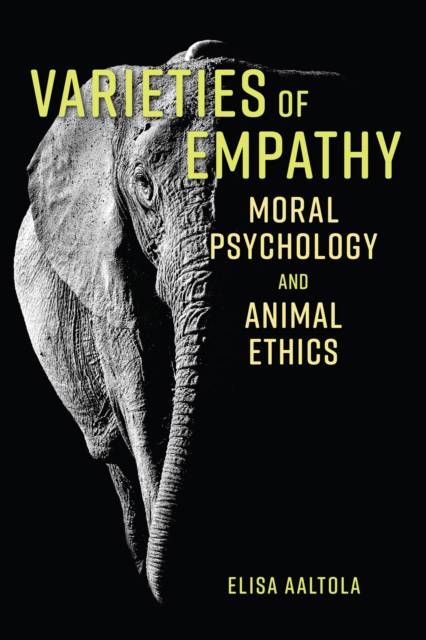
- Afhalen na 1 uur in een winkel met voorraad
- Gratis thuislevering in België vanaf € 30
- Ruim aanbod met 7 miljoen producten
- Afhalen na 1 uur in een winkel met voorraad
- Gratis thuislevering in België vanaf € 30
- Ruim aanbod met 7 miljoen producten
Zoeken
€ 76,45
+ 152 punten
Uitvoering
Omschrijving
Empathy is a term used increasingly both in moral theory and animal ethics, with the suggestion that empathy enhances our moral ability and agency. Yet, its precise meaning is often left unexplored, together with the various obstacles and challenges met by an empathy-based ethic, such as those concerning the ways in which empathy is prone to bias and may also facilitate manipulation of others. These oversights render the contemporary discussion on empathy and animal ethics vulnerable to both conceptual confusion and moral simplicity. The book aims to tackle these problems by clarifying the different and even contradictory ways in which "empathy" can be defined, and by exploring the at times surprising implications the various definitions have from the viewpoint of moral agency. Its main question is: What types of empathy hinder moral ability, and what types enable us to become more morally capable in our dealings with the nonhuman world? During the contemporary era, when valuable forms of empathy are in decline, and the more hazardous, self-regarding and biased varieties of utilising empathy in the increase, this question is perhaps more important than ever.
Specificaties
Betrokkenen
- Auteur(s):
- Uitgeverij:
Inhoud
- Aantal bladzijden:
- 254
- Taal:
- Engels
Eigenschappen
- Productcode (EAN):
- 9781786606129
- Verschijningsdatum:
- 9/02/2018
- Uitvoering:
- Paperback
- Formaat:
- Trade paperback (VS)
- Afmetingen:
- 150 mm x 226 mm
- Gewicht:
- 430 g

Alleen bij Standaard Boekhandel
+ 152 punten op je klantenkaart van Standaard Boekhandel
Beoordelingen
We publiceren alleen reviews die voldoen aan de voorwaarden voor reviews. Bekijk onze voorwaarden voor reviews.







